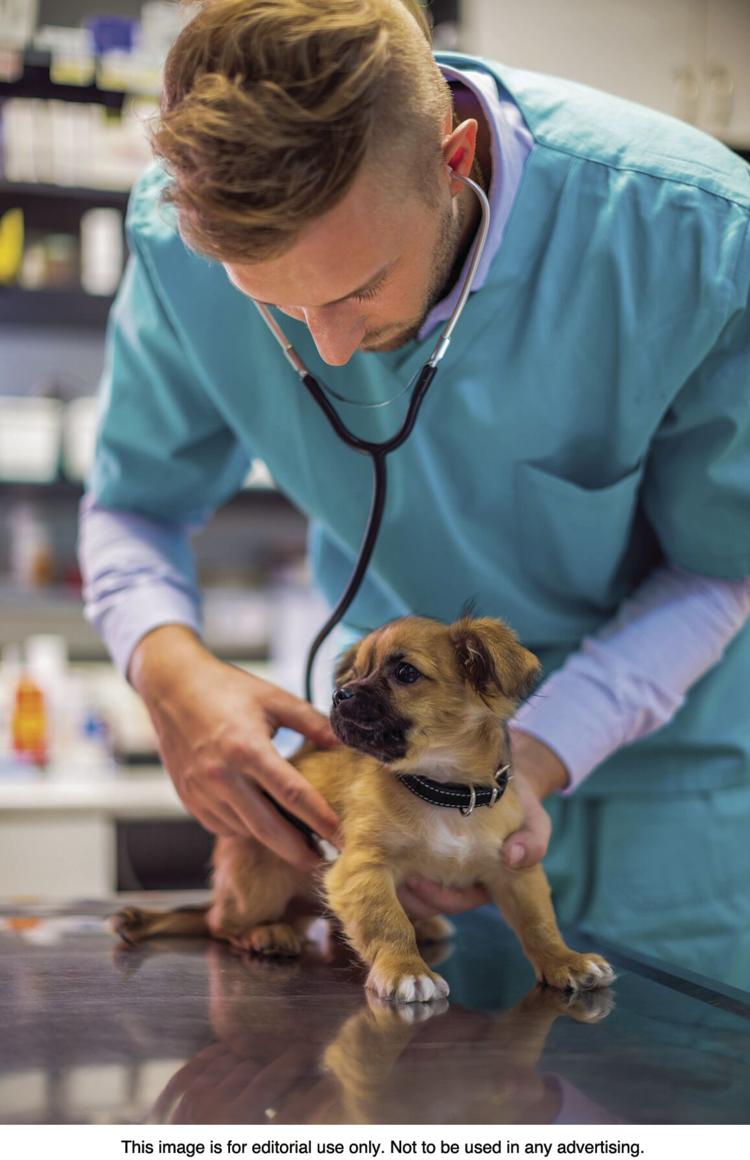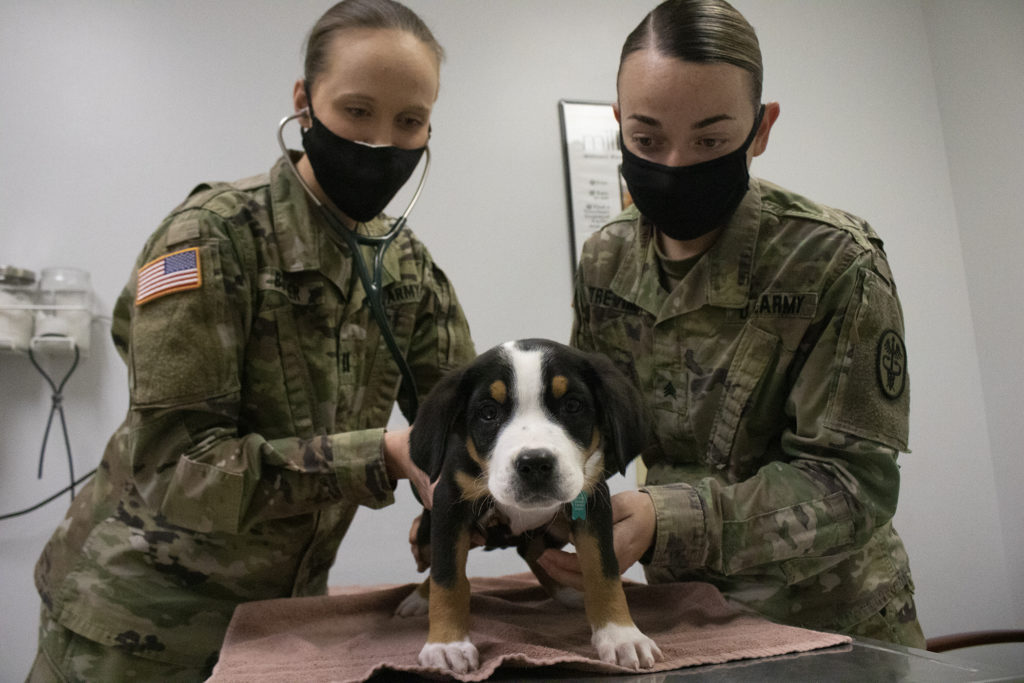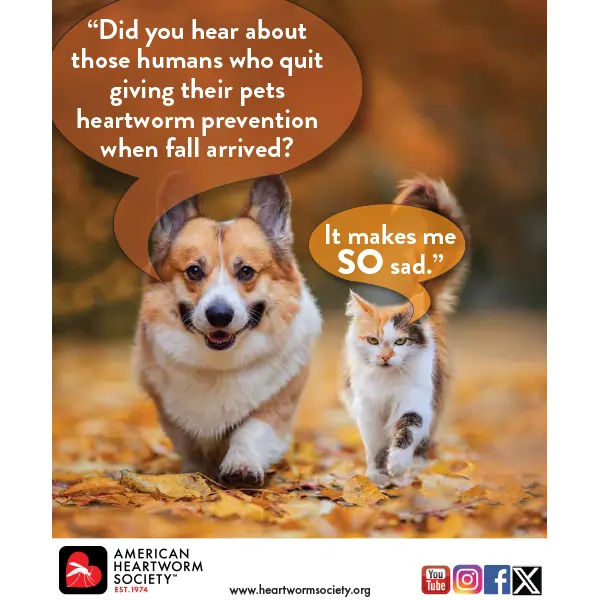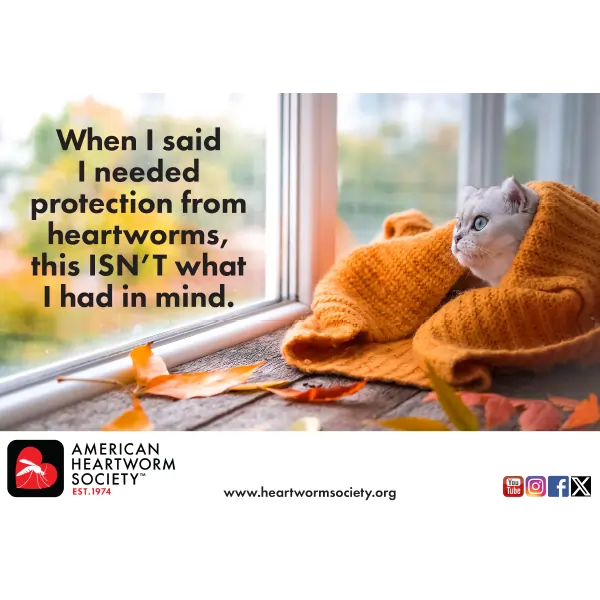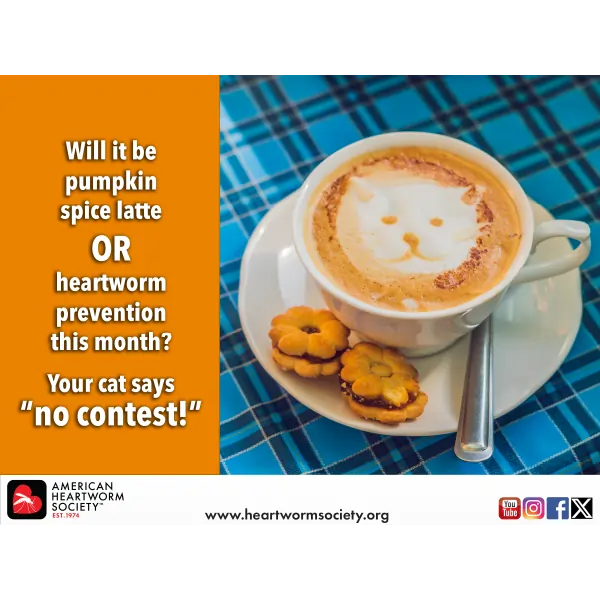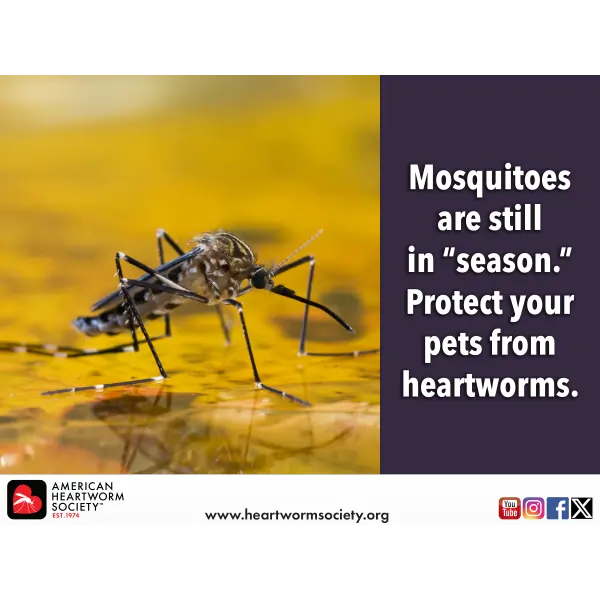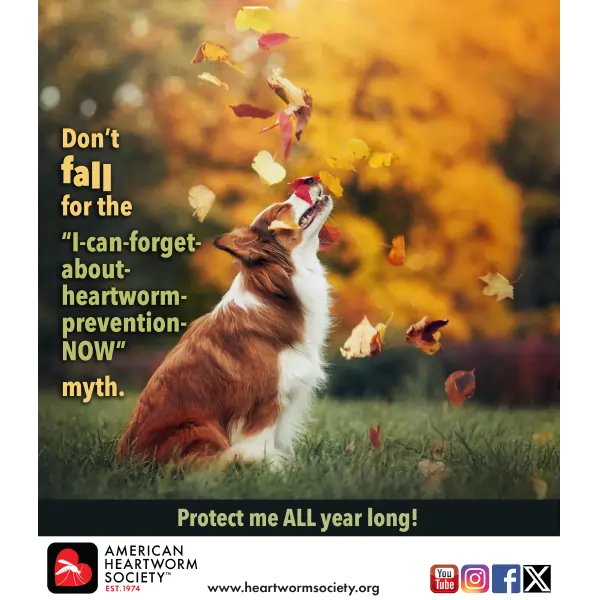Cats are known to have a penchant for biting and scratching, but even the most fierce feline can be docile and affectionate when they’re feeling right. Like humans, cats need routine veterinary care to keep their wellness in check.
The colors are changing but your clients’ heartworm prevention programs shouldn’t. To help spice up your client outreach programs this fall, the AHS has created a new set of posters you can print or post on your social pages.
To keep this message front and center with your clients, we’re sharing a set of new posters you can print OR post on your Facebook or Instagram page.
- To save or print a poster, just click on the image below, then click on the “download” button and save the PDF file.
- To save a poster for use on your social pages, simply open the downloaded poster, then right click on the file and follow the menu instructions to save the file as a JPEG image.
For more client tools, be sure to visit the Resource Center. And if you don’t already, make sure you’re sharing our Facebook and Instagram posts!




